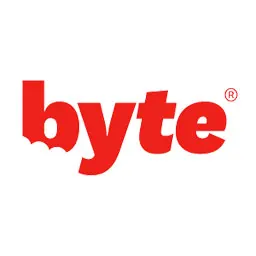How to Fix Crooked Teeth: 4 Ways to Get Straighter Teeth

Table of Contents
- Treating Without Braces
- Treatment Options
- Frequently Asked Questions
- How to Fix Crooked Teeth?
- Benefits of Fixing Crooked Teeth
- What Are Crooked Teeth?
- Fixing Crooked Teeth with Insurance
Even simple things like chewing or smiling can be a chore when your teeth don't fit together properly. The sooner you can improve your smile, the better.
In the past, there was just one way to fix crooked teeth. You'd walk into an orthodontist's office and walk out with metal brackets and wires on your teeth.
Now, you have plenty of options, including these:
Braces
Aligners
Surgery
Cosmetic procedures (like veneers)
The right choice for you will depend on your oral health, your goals, and your budget.
About 90% of people have teeth that are at least slightly out of alignment. If your teeth don't look as straight as you'd like, you're not alone.
Almost 90% of people 20 and older have experienced at least one cavity. Crooked teeth make cleaning tough, and that can lead to advanced decay.
Almost 30% of people don't show their teeth when posing for photos due to their teeth. A crooked set of teeth doesn't always look good in photos.
While fixing crooked teeth can help improve oral health and your smile, about 36% of adults are afraid of dental appointments. Their fears keep them away from solutions that could help.
What Are Crooked Teeth?
These are types of crooked teeth:
Crowding: Brushing and flossing are tough, so your teeth wear down quickly.
Excessive spacing: Food gets caught between your teeth, leading to advanced decay.
Open bite: Your teeth don't come together properly, leading to chips and cracks.
Overbite: Your teeth don't meet, leading to chipping and wear.
Underbite: Your bottom teeth tap the tops, leading to enamel breakdown.
Crossbite: Your uneven bite makes cleaning tough, and your teeth can chip and crack.
Deep bite: Uneven wear leads to cracks and chipping.
Protrusion: Your back teeth grind together, leading to advanced wear and decay.
How Can I Fix Crooked Teeth?
Dental professionals have three main methods available to fix crooked teeth. During an assessment, your team can tell you which option seems right for your smile.
This chart can help you review all your options at a glance:
| Cost | Treatment Duration | Ideal Patient |
Braces | $3,000–$10,000 | 12–36 months | People with moderate to severe cases of crooked teeth |
Aligners | $2,000–$7,000 | 6–18 months | People with mild to moderate cases of crooked teeth |
Surgery | $15,000–$40,000 | 18–36 months (including braces after surgery) | People with severe jaw misalignment issues braces alone can’t fix |
Cosmetic Procedures | $300–$600 per tooth | 1 visit | People with minor gaps or cosmetic issues |
Can I Fix Crooked Teeth Without Braces?
People with mild cases of crooked teeth may not need braces or aligners at all. Cosmetic techniques can cover up the problem and enhance the way your smile looks.
Cosmetic solutions for crooked teeth include the following:
Veneers: Your dentist glues tooth-colored veneers to the front of your teeth.
Bonding: Your dentist uses tooth-colored materials to close up gaps and make your teeth look straighter.
Whitening: Your dentist uses gels to lighten up stains and make your teeth seem straighter.
Note that none of these methods change how your teeth fit together or in your jaw. But they can help your teeth to look a little better.
How to Fix Crooked Teeth with Insurance
Research from the U.S. Department of Health and Human Services says close to 74% of Americans had dental insurance in 2022. If you’re one of them, you could use your benefits to pay for your tooth straightening work.
Some dental insurance plans include coverage for orthodontic care, including braces and aligners. However, some don’t cover this type of care for people older than 18, and some require patients to pay for at least some of the care out of pocket.
Before you plan on using your dental insurance plan, contact the company and ask for more information. Find out how much the company will pay, how much you’ll have to cover, and if there are caps on how much the plan will pay out.
If your dental insurance won’t pay for care, don’t worry. You could use funds in your health savings account (HSA) or flexible spending account (FSA) to pay for eligible medical expenses, including braces and aligners. Your dental provider may also provide discounts or payment plans to make your care more affordable.
What Are the Benefits of Fixing Crooked Teeth?
It's tempting to consider crooked teeth cosmetic problems. But as the American Association of Orthodontists points out, crooked teeth can lead to significant health issues, including the following:
Added wear
Chipping
Tooth grinding
Pain, including migraines
Fixing crooked teeth can make your smile look better. However, fixing your teeth can also mean reducing the risk of cracked and broken teeth, so you’ll have lower pain levels.
Straight teeth are also easier to clean. You’ll be able to brush your teeth efficiently, and flossing is easier when the threads don’t snag on your teeth. When your smile is straight, your teeth will be easier to clean, and you’ll be less likely to deal with tooth or gum decay.
Which Treatment Option Is Right for You?
The right solution for you varies depending on your oral health and dental condition.
Mild issues: Consider cosmetic solutions. They won't fix the underlying problem, but your treatment will be complete within just a day or two.
Moderate issues: Aligners offer the quickest way to straighten your teeth. Pick the right product, and you might also save money and have a more comfortable experience as your teeth move.
Severe issues: If aligners don't work due to the severity or complexity of your teeth placement issues, traditional braces or surgery might be better options. While they may take longer and could potentially cost more, you'll be able to achieve the smile you want.
Take your time and investigate your options. Your smile is important. And this is a big decision you shouldn't take lightly.
Fixing Crooked Teeth Frequently Asked Questions
Your smile is important, and choosing the right solution for crooked teeth isn't always easy. These are common questions people often ask:
